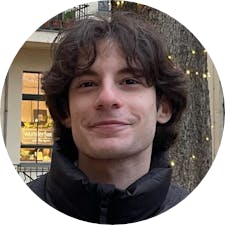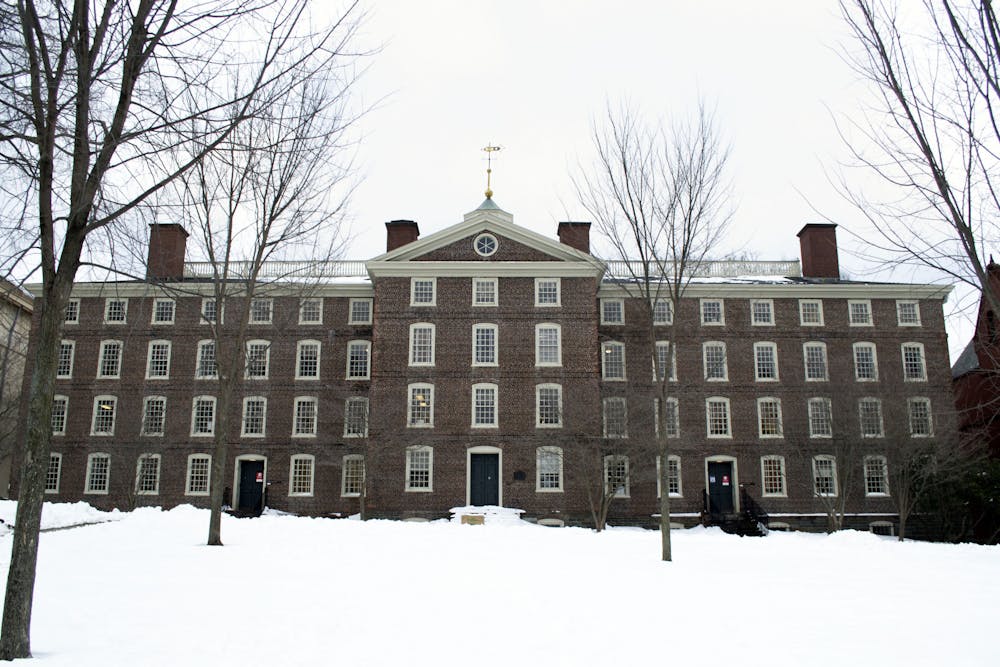Members of the University’s faculty and administration opted to postpone a vote on the establishment of a proposed Philosophy, Politics and Economics Center at the first faculty meeting of the semester Tuesday. The vote will instead be held at the next faculty meeting March 1.
Govind Menon PhD’01, professor of applied mathematics, opened the meeting on behalf of the Faculty Executive Committee and brought forth the initial motion to establish a PPE center on campus.
Provost Richard Locke P’18, who has previously expressed his support for the PPE Center, prefaced the discussion by asking faculty members to “focus (the) discussion on what the PPE Center actually proposes to do and not turn this into some sort of referendum on broader political issues.”
Locke also brought up the “active campaign” among faculty and students opposing the PPE Center. These campaigns have partially focused on the proposed PPE Center’s connection to the Political Theory Project, which previously received funding from the Koch Foundation, a foundation run by billionaire and conservative political mega-donor Charles Koch, The Herald previously reported.
Locke assured faculty that none of the “efforts to try to link the PPE Center to these outside groups … (through) guilt by association … provide evidence that there is a linkage between these outside groups and funding for the PPE Center.”
Paul Guyer, professor of humanities and philosophy, later echoed this sentiment in the faculty discussion.
“The proposed PPE Center would be a replacement project, not a continuation of the Political Theory Project,” Guyer said. “Whatever people might think has been the case with (the) PTP is, strictly speaking, irrelevant to the desirability of establishing a PPE Center.”
“What’s at stake here, given how politicized for some reason (the Center) has become, is I believe the very essence of our University,” Locke added. “Behind (this opposition) is a view held by some of these critics — not all — made implicitly … that they simply don’t want conservatives or libertarians to have a home here on campus.”
Eric Patashnik, professor of public policy and political science, later agreed. “The PPE Center responds to the urgency of the current moment. We are living in an era of intense polarization,” Patashnik said. “Great research universities like Brown have a critical role to play in bringing together people across the ideological divides and promoting thoughtful dialogue about the array of challenges we face.”
Nancy Khalek, associate professor of religious studies, countered this assessment later in the meeting.
“Conservatives (and) libertarians are already on our faculty. They’re already in departments at Brown. They already have places where we can debate and study and collaborate,” Khalek said. “Given the identity of PPE in America at this moment, we do have to acknowledge why these are serious issues … Claiming that we can avoid them just simply by being as excellent as we are at Brown seems to me a bit naive.”
J. Timmons Roberts, professor of environmental studies and sociology, also spoke about faculty issues with the PPE Center.
Speaking on behalf of the Scholars at Brown for Climate Action, Roberts brought up a proposal under review by the Advisory Committee on University Resources Management that he said would alter University policy on gifts and grants to “help the University avoid business with groups and foundations and contractors that support climate disinformation and support obstruction.”
The PPE Center may be able to “avoid these types of relationships … only if we institute a screening system that will allow us to reject donations from groups denying basic science,” he added.
Roberts then motioned to postpone the pending vote on establishing a PPE Center until the next faculty meeting in March. He claimed this would “allow faculty to assess whether the University has developed a sufficiently robust policy to prevent financial or gift arrangements from entities engaged in science disinformation from damaging the reputation or scholarly integrity of the University.”
The motion was seconded by Timothy Herbert, professor of environment and society.
In response, Locke stated that he did not believe “there is any reason to postpone this vote.”
“This proposal we are talking about is a proposal for an academic center. We are not talking about a gift policy that applies to every part of the University,” Locke said. “Let’s deal with this issue, and also deal with the gift policy issue in a separate track, giving each their appropriate time.”
Khalek expressed her disagreement with Locke.
“I don’t agree that the University gift policy is irrelevant to these discussions. I think separating these two things, what ACURM is considering and this proposed center, is an artificial separation,” Khalek said. “The current political climate, which I understand is not the soil in which the center is planted, is not irrelevant either.”
“It would just inspire a lot more confidence among the faculty and the students if the University would simply acknowledge that the fraught (atmosphere) of these issues is important and relevant,” Khalek said. “In the spirit of good faith, take our concerns a bit more seriously when we say that we want more time to establish some better guardrails, both about the funding of any center at Brown, but also (about) the governance of this proposed Center.”
The faculty voted to postpone the item until the March 1 faculty meeting with a 62% majority.
Faculty receive President’s report, discuss task forces
The meeting also featured a President’s Report given by President Christina Paxson P’19. The report gave an update on the topics to be discussed in the upcoming meeting of the Corporation, the University’s highest governing body.
The meeting will discuss recommendations from the University Resources Committee on tuition, salary pools and staff appreciation bonuses, strategies for growing the University’s research across disciplines and ways to make the University stronger academically while also engaging a larger community of learners. The Corporation will also discuss ways to increase participation of alumni and parents in the CareerLab and future meetings with the Medical Faculty Executive Council.
Diane Lipscombe, professor of neuroscience, gave an update on the Task Force on the Status of Women Faculty, publicizing the two faculty town hall meetings that will take place Feb. 7 and 9. The Task Force expects to deliver a report and recommendations on the hiring, promotion, salary and retention of women faculty in May 2022.
Executive Vice President for Planning and Policy Russell Carey ’91 MA’06 gave a public health update, praising the University’s transition to a self-reported testing process and the low number of positive cases.
“We will continue to distribute tests, people get two tests every week … through the middle of February and then see where we are,” Carey said.
Menon announced the creation of a Task Force on Child Care organized by the FEC and the Office of the Provost.
“The bonds that many faculty and staff of my generation formed during our children’s pre-K education have been great sustenance to us during the pandemic,” Menon said. “It is critical that the University invests in this area so that a new generation may develop similar bonds of community.”
The meeting also featured moments of silence for the passing of Christine Byron, former chair of molecular microbiology and immunology, and Martha Sharp Joukowsky, professor emerita of archaeology and the ancient world.

Alex Nadirashvili was the managing editor of multimedia and social media for The Brown Daily Herald's 133rd Editorial Board. As a former University News editor, he covered faculty, higher education and student life, though his proudest legacy is The Brown Daily Herald TikTok account.





